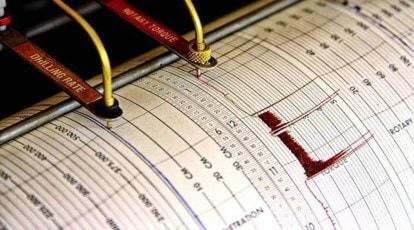
5.2-magnitude earthquake hits Turkey
On Thursday, Turkey was hit by a powerful earthquake of 5.2 magnitude, according to the country’s Disaster and Emergency Management Authority (AFAD). The epicentre of the earthquake was located in the Kulu district of Konya, a city located in central Turkey. The tremors were felt not only in Konya but also in the capital city of Ankara and several other cities in the region.
The earthquake occurred at around 2:30 am local time and was followed by several aftershocks. According to reports, the quake caused widespread panic and damage, although the extent of the damage is still being assessed.
The Turkish government has set up emergency response teams to provide aid and assistance to those affected by the earthquake. The teams are working to rescue those trapped under debris and provide medical care to those in need.
The 5.2-magnitude earthquake is considered a strong tremor, and it is feared that the damage could be more extensive than initially thought. The earthquake was also felt in several other cities in central Turkey, including Ankara, the capital city, and Kayseri, a major city in the region.
The earthquake is a reminder of the seismic risk that Turkey faces. The country is located in a seismically active region, and earthquakes are a frequent occurrence. In fact, Turkey is one of the most seismically active countries in the world, with a long history of devastating earthquakes.
In recent years, Turkey has suffered several major earthquakes, including a 7.2-magnitude quake in 2011 that killed over 600 people and a 6.8-magnitude quake in 2017 that caused widespread damage and loss of life.
The Turkish government has implemented various measures to mitigate the impact of earthquakes, including building codes and emergency response plans. However, despite these efforts, the country remains vulnerable to seismic activity.
The earthquake that struck Turkey on Thursday is a reminder of the importance of being prepared for natural disasters. It is essential for individuals and communities to have emergency response plans in place and to know what to do in the event of an earthquake.
In the aftermath of the earthquake, the Turkish government has mobilized a team of experts to assess the damage and provide aid to those affected. The team includes experts from the Disaster and Emergency Management Authority (AFAD), the Turkish Red Crescent, and other organizations.
The Turkish Red Crescent has also dispatched teams to the affected areas to provide medical care and other assistance to those in need. The organization has also set up shelters for those who have been displaced by the earthquake.
The international community has also offered its support to Turkey in the aftermath of the earthquake. The United States, the European Union, and other countries have offered aid and assistance to help Turkey respond to the disaster.
In conclusion, the 5.2-magnitude earthquake that struck Turkey on Thursday is a sobering reminder of the seismic risk that the country faces. While the damage caused by the earthquake is significant, it is heartening to see the Turkish government and other organizations working to provide aid and assistance to those affected. It is essential for individuals and communities to be prepared for natural disasters and to know what to do in the event of an earthquake.



